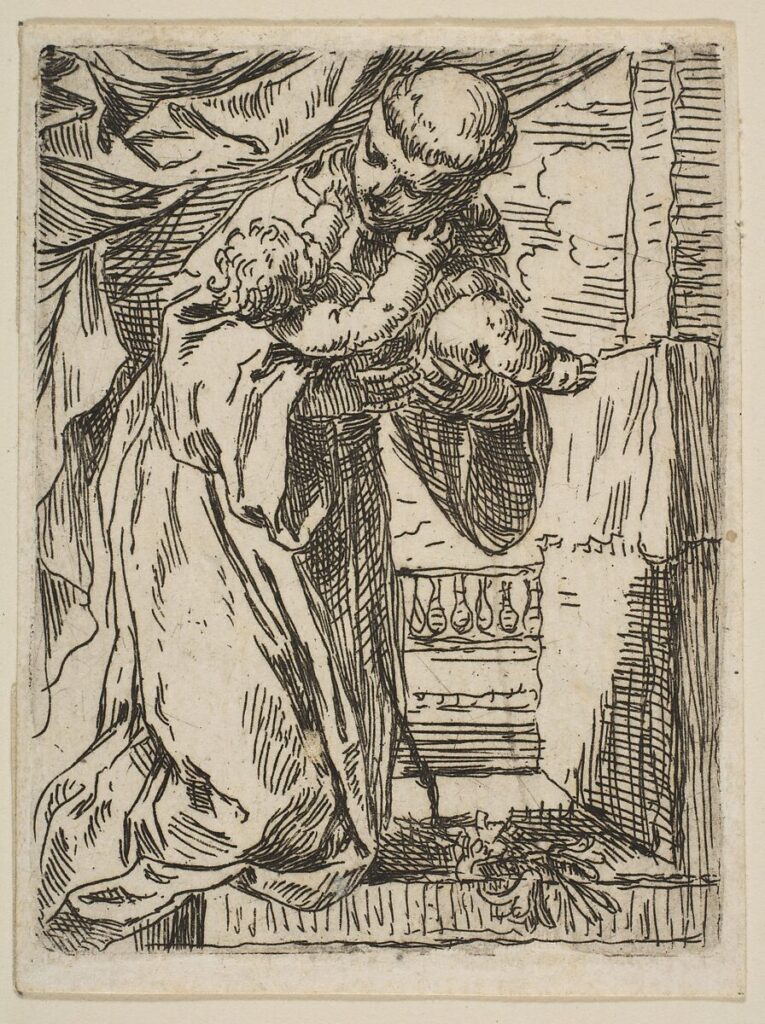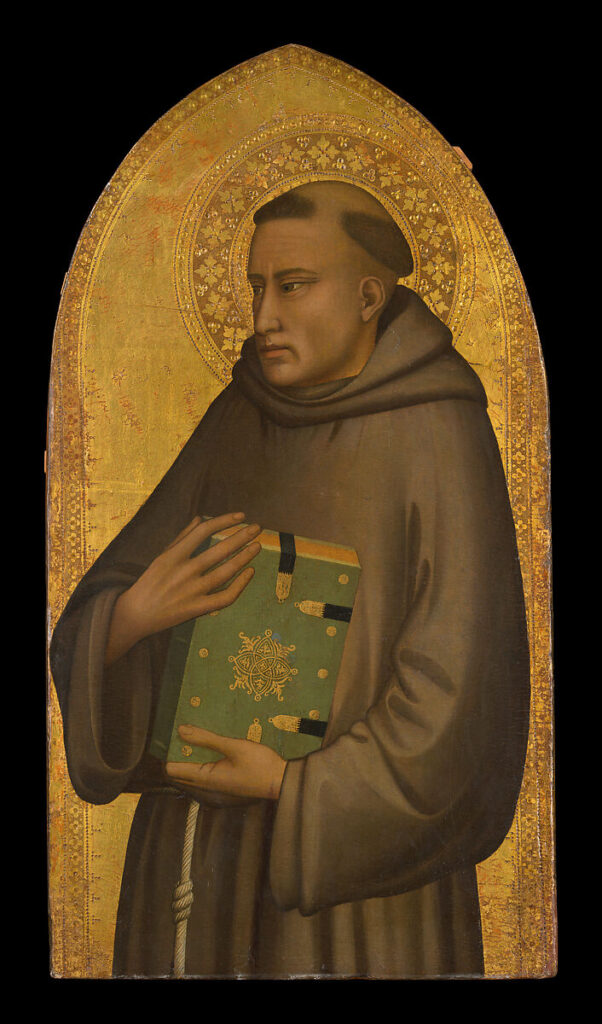Feast Day: June 13
How do you expect to spend your eternity in Heaven? St. Paul promises that it is beyond our expectations: eye has not seen nor ear heard what God has prepared for those who love him (1 Cor 2:9). I will be a bit disappointed if I get to Heaven and find that my eternal job is to look around for dropped car keys and people’s misplaced glasses. That’s why I feel kind of bad for St. Anthony of Padua. He lived a remarkable and holy life, but all Catholics seem to care about is muttering, “Tony, Tony, look around—something’s lost and must be found.”
Oddly, though, he seems to answer those prayers. Try it if you’ve lost something. I still feel bad saying it. Should I be bothering St. Anthony about something I misplaced through my own fault especially since I could surely live without it? Doesn’t asking this kind of service of a great man trivialize him?

Who was St. Anthony?
Anthony originally hailed from Portugal. He joined a monastery as a bright teenager and received an excellent education. Then, in 1220, news arrived that five friars of a radical new order—the Franciscans—had been executed in Morocco for preaching Christianity to Muslims. The king of Portugal retrieved the martyrs’ bodies and buried them in the monastery where Anthony lived. Inspired by their example, Anthony decided to join the Franciscans and continue their mission in Morocco.
None of St. Anthony’s plans worked out. His failing health cut short his Moroccan mission. Storms drove his ship to Sicily and he wandered erratically through Italy before finding a permanent home. He wanted a harshly penitential life as a hermit; due to his ill health, his superiors refused him. One day he found himself at a joint ceremony for Dominican and Franciscans priests for which no one had prepared a homily and, to his horror, his superiors asked him to say a word. His homily revealed his great theological education, putting an end to his pretense of being a simple, illiterate brother.
St. Francis learned of this talented and truly humble friar, and put him to work. As much as Francis revered priests, he had worried about whether ordained Franciscans would be able to preserve their humility. In Anthony, he discovered the answer: yes. He put Anthony in charge of educating Franciscans destined for the priesthood as well as entrusting Anthony with preaching missions for the general populace. Anthony’s mastery of scripture combined with his humility moved many listeners. His surviving sermons show such richness in weaving together different strands of revelation that Pope Pius XII declared him a “doctor of the church” in 1946 under the nickname Doctor evangelicus (“the Gospel teacher”).
“Lo! thou trusteth upon this broken staff of a reed, upon Egypt: upon which, if a man lean, it will go into his hand and pierce it” (Is 36.6). Worldly wealth and bodily health are like a reed rooted in the mud, beautiful on the outside but hollow within. If a man leans upon this reed, at death it breaks; and, being broken, wounds the soul which, so wounded, falls into hell.
Anthony’s interpretation of Scripture drew on the medieval tradition of expanding allegories and tracing symbols across multiple books, then applying them to our lives and faith. If reeds make a poor staff, then on what staff should we lean? Elsewhere Anthony answers the question: Christ’s cross. The Cross is the walking stick that Jesus used to journey from Calvary through Hell to Heaven and is the one we also must use to support ourselves.
Anthony of Padua, Sermons, First Sunday of Advent. Translated by Paul Spilsbury. http://www.franciscan-archive.org/antonius/opera/ant-hd00.html
The Patron Saint of Lost Things
Images of Anthony often include a lily (a symbol of purity in his preaching), the Child Jesus (whom he saw in a vision), or a donkey (who knelt before the Eucharist when Anthony wished to show the True Presence). Anthony though is most famous for finding things.
His expertise comes from a miracle. He had a copy of the psalms full of notes that he used to teach the novices. Like all medieval books, it was handwritten and therefore quite an investment of time or money. One novice decided to leave the Franciscans and stole the book, presumably to make a quick buck reselling it. Anthony began to pray for the thief. The thief received the grace of repentance. The contrite thief returned the book, begged forgiveness, and rejoined the Franciscans.

The Joy of Humble Service
Anthony, having proved himself good at getting one stolen item returned, has spent eight centuries continuing to help people with lost or stolen items. Does he mind the work? Probably not. I think if we’re joyful and give God thanks, he feels joy as well. Finding car keys may not be a glamorous task but Anthony always sought the humble life.
Anthony lived his life based on two principles: living out a passionate, penitential love for God and serving others when called to do so without seeking his own glory. Anthony was a man of vast talent, but he never sought to force his gifts on others. I love one later (probably legendary) story of Anthony turning away from the town of Rimini when its people rejected his preaching—and instead preaching to the fish in the bay. The sight of hundreds of fish sticking their heads up to hear drew a curious crowd until they too opened themselves to receive Anthony’s gifts. Anthony’s work as a preacher and teacher wasn’t the path he had wanted, but he did it humbly when asked. God made sure that his gifts had a chance to come out. Anthony’s obedient humility let him fulfill God’s plan rather than his own.
I think this is a tricky lesson to apply to our own lives. I tend to dramatically overestimate or underestimate my own talents. Do I really have something in this or that particular situation to offer? Am I being prideful? Or am I holding back gifts that God gave me to use for others’ benefit? Anthony’s life suggests that God will use me if I let him. Perhaps it starts with humble acts of service to others, like helping them look for their car keys.
If you have a response, thoughts, or questions, please comment at the bottom of the page. Consider subscribing below to get weekly email notifications about new reflections and other news.


